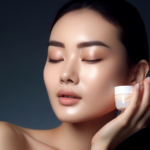Let’s unravel the mystery of retinol and discover the best ways to incorporate it into your skincare routine. You may have come across this buzzword in the world of beauty, but what exactly is retinol? In simple terms, retinol is a form of vitamin A that is widely acclaimed for its powerful anti-aging and skin-rejuvenating properties. From reducing the appearance of fine lines and wrinkles to evening out skin tone and enhancing collagen production, the benefits of retinol are endless. However, using retinol requires some finesse. Find out the dos and don’ts of incorporating retinol into your skincare regimen to achieve optimal results and transform your complexion.
What is Retinol?
Overview of Retinol
Retinol is a skincare ingredient that has gained significant popularity and recognition in recent years. It is a form of vitamin A, which is known for its numerous benefits for the skin. Retinol is widely used in skincare products to address various skin concerns, such as wrinkles, fine lines, acne, hyperpigmentation, and uneven skin texture.
Definition of Retinol
Retinol is a cosmetic ingredient derived from vitamin A, a vital nutrient for healthy skin. It belongs to a group of compounds called retinoids, which are renowned for their ability to enhance skin health and appearance. Retinol is a milder form of retinoid compared to prescription-strength options like tretinoin. It is available over the counter in various skincare products, including creams, serums, and oils.
Sources of Retinol
Retinol can be obtained from both animal and plant sources. Animal-based sources include liver, egg yolks, and dairy products, while plant-based sources include carrots, sweet potatoes, and dark leafy greens. However, it is important to note that the retinol content in food sources is relatively small compared to the concentrations used in skincare products. Therefore, topical application of retinol is often the most effective way to witness its benefits on the skin.
Benefits of Retinol
Reduces Wrinkles and Fine Lines
One of the most well-known benefits of retinol is its ability to reduce the appearance of wrinkles and fine lines. Retinol works by boosting collagen production in the skin, which helps to improve skin elasticity and texture. Regular use of retinol can lead to smoother, firmer, and more youthful-looking skin.
Improves Skin Texture
In addition to reducing wrinkles, retinol also has the power to improve overall skin texture. It works by exfoliating the top layers of the skin, promoting the shedding of dead skin cells and encouraging the growth of new, healthy skin cells. This process not only helps to reduce the appearance of roughness and unevenness but also enhances the skin’s natural radiance.
Evens out Skin Tone
Retinol possesses properties that can address pigmentation concerns and even out skin tone. It can effectively fade dark spots, sunspots, and age spots, revealing a more balanced and harmonious complexion. By inhibiting excess melanin production, retinol helps to minimize the appearance of hyperpigmentation and create a more uniform skin tone.
Stimulates Collagen Production
Collagen is a protein that plays a crucial role in maintaining the structure and firmness of the skin. As we age, collagen production naturally declines, leading to the formation of wrinkles and sagging skin. Retinol stimulates collagen synthesis in the skin, helping to counteract the effects of aging and restore a more youthful vitality.
How Does Retinol Work?
Retinol’s Effect on Skin Cells
When applied topically, retinol penetrates the skin and interacts with specific receptors in the skin cells called retinoic acid receptors. This interaction triggers various cellular processes that lead to the numerous benefits of retinol, such as increased collagen production, improved cell turnover, and enhanced antioxidant activity.
Stimulating Collagen Production
Retinol works by stimulating the production of collagen, a vital protein responsible for the skin’s strength and elasticity. By promoting collagen synthesis, retinol helps to strengthen the skin’s support structure, making it more resilient against the signs of aging, including wrinkles and sagging.
Speeding up Cell Turnover
Retinol accelerates the process of cell turnover, which is the natural shedding of dead skin cells and the generation of new ones. By increasing the rate at which old cells are shed and new cells replace them, retinol helps to keep the skin’s surface smooth and radiant. This process also minimizes clogged pores, reducing the occurrence of acne breakouts.
Combating Free Radicals
Retinol is a potent antioxidant, which means it has the ability to neutralize harmful free radicals in the skin. Free radicals are unstable molecules that can cause oxidative stress and damage to the skin cells, leading to premature aging. By combating free radicals, retinol helps to protect the skin from environmental aggressors and maintain its youthful appearance.
Choosing the Right Retinol Product
Strength and Concentration
When choosing a retinol product, it’s important to consider the strength and concentration of the retinol. Higher concentrations of retinol may offer more significant results but can also be more irritating to the skin. It is generally recommended to start with a lower concentration product and gradually increase as tolerated.
Formulation
Retinol is available in various formulations, such as creams, serums, oils, and gels. Each formulation has its own texture and absorption rate, so it’s essential to choose one that suits your skin type and personal preferences. Creams and serums are typically well-suited for most skin types, while oils may be more beneficial for those with dry or mature skin.
Additional Ingredients
Many retinol products are formulated with additional ingredients to enhance their effectiveness or address specific skin concerns. Common additives include hyaluronic acid for hydration, niacinamide for brightening, and antioxidants to provide extra protection against free radicals. Consider your individual skincare needs and look for products that contain complementary ingredients.
Consideration for Skin Type
It’s crucial to consider your skin type when selecting a retinol product. Retinol can be beneficial for most skin types, but individuals with sensitive or dry skin may need to be more cautious and choose milder formulations. If you have particularly sensitive skin, it may be wise to consult with a dermatologist before starting a retinol regimen.
How to Use Retinol
Patch Test First
Before applying retinol to your entire face, it is recommended to perform a patch test. Apply a small amount of the product to a discreet area of the skin, such as the inside of your wrist, and monitor for any adverse reactions over the next 24 hours. If no irritation occurs, it is usually safe to use the retinol on your face.
Start Slowly
When introducing retinol into your skincare routine, it’s important to start slowly and gradually increase frequency to allow your skin to adjust. Begin by applying the product once or twice a week and slowly increase to every other night or nightly, depending on your skin’s tolerance.
Apply at Night
Retinol is sensitive to sunlight and can break down when exposed to UV rays, making it less effective. Therefore, it is recommended to apply retinol products at night before bed. This allows the retinol to work overnight, maximizing its benefits and minimizing the risk of photosensitivity.
Cleanse and Exfoliate
Before applying retinol, cleanse your face thoroughly to remove any dirt, oil, or makeup. Exfoliating beforehand can also help to enhance the penetration of retinol into the skin. However, avoid harsh physical exfoliants or chemical exfoliants that may cause excessive irritation when used in conjunction with retinol.
Use Moisturizer
To minimize potential drying or irritation, it is important to apply a moisturizer after the retinol has absorbed into the skin. Moisturizers help to lock in hydration and provide a protective barrier that reduces the risk of moisture loss. Look for a moisturizer that is compatible with retinol and suits your specific skin type.
Common Side Effects and How to Minimize Them
Skin Irritation
One of the most common side effects of retinol is skin irritation, including redness, itching, and flaking. To minimize these effects, start with a low concentration product and gradually increase usage as tolerated. Additionally, ensure that your skin is properly hydrated and moisturized before and after applying retinol.
Dryness and Peeling
Retinol can sometimes cause the skin to become dry and peel, especially during the initial stages of use. To combat dryness, apply a moisturizer regularly and consider incorporating a hydrating serum or facial oil into your skincare routine. Avoid using overly harsh or drying products that could exacerbate dryness.
Sensitivity to Sunlight
Retinol can increase the skin’s sensitivity to sunlight, making it more prone to sunburn and damage. It is crucial to apply a broad-spectrum sunscreen with a high SPF during the day to protect your skin from harmful UV rays. Wearing protective clothing and seeking shade when possible can also help minimize sun sensitivity.
Tips to Prevent Side Effects
To prevent or minimize side effects associated with retinol use, it is advisable to start with a low concentration and gradually increase over time. Allow your skin to acclimate by using retinol every few days initially and slowly progress to nightly use. Always follow the instructions provided with the product and consult with a dermatologist if you experience persistent or severe irritation.
Retinol for Different Skin Concerns
Aging Skin
Retinol is a powerful ingredient for addressing the signs of aging. Its ability to stimulate collagen production and increase cell turnover helps to reduce the appearance of wrinkles, fine lines, and sagging skin. Regular use of retinol can promote a more youthful and radiant complexion.
Acne and Breakouts
Retinol can be an effective treatment for acne and breakouts. It helps to unclog pores, reduce oil production, and promote the shedding of dead skin cells, preventing the formation of acne-causing bacteria. By regulating the skin’s oil balance and exfoliating the skin, retinol can help to minimize acne flare-ups and improve overall skin clarity.
Hyperpigmentation
Retinol has been shown to fade hyperpigmentation and even out skin tone. By inhibiting excess melanin production and promoting the shedding of pigmented cells, retinol can help to lighten dark spots, sunspots, and post-inflammatory hyperpigmentation. Consistent use of retinol can result in a more luminous and balanced complexion.
Uneven Skin Texture
If you struggle with rough or uneven skin texture, retinol can be a game-changer. It works by exfoliating the top layers of the skin, removing dead skin cells and encouraging the growth of new, smooth skin cells. Daily use of retinol can promote a refined and velvety texture, leaving your skin soft and supple.
Frequently Asked Questions about Retinol
Can I Use Retinol if I Have Sensitive Skin?
While retinol can be used by individuals with sensitive skin, it is crucial to proceed with caution. Start with a low concentration product and gradually increase usage as tolerated. Additionally, ensure that your skincare routine includes gentle and hydrating products to minimize potential irritation.
Can Retinol Be Used During Pregnancy?
It is generally recommended to avoid using retinol products during pregnancy, as high doses of vitamin A can potentially harm the developing fetus. However, it is best to consult with your healthcare provider for personalized advice and alternative skincare options that are safe for use during pregnancy.
Can Retinol Make Acne Worse Before It Gets Better?
Retinol can initially cause a temporary flare-up of acne, known as retinization, as it purges the skin and brings impurities to the surface. This is a normal part of the process, and it usually improves with continued use. If the flare-up persists or worsens, consult with a dermatologist for guidance.
Retinol Myths and Misconceptions
Retinol Thins the Skin
Contrary to popular belief, retinol does not thin the skin. In fact, it helps to thicken the skin by stimulating collagen production and improving overall skin health. However, incorrect or excessive use of retinol without proper moisturization and sun protection can potentially lead to dryness and a compromised skin barrier.
Retinol is Only for Older People
Retinol is beneficial for individuals of various age groups, not just older people. It can be used as a preventative measure against aging for those in their twenties and thirties, as well as a corrective treatment for more mature skin. The key is to choose a retinol concentration and formulation that suits your unique skincare needs.
Retinol Should Only be Used at Night
While it is true that retinol is sensitive to sunlight and can degrade when exposed to UV rays, it does not necessarily mean it should only be used at night. Applying sunscreen during the day provides ample protection, allowing you to confidently use retinol in your morning and evening skincare routines. Always ensure that you follow proper sun protection measures when using retinol.
Conclusion
Retinol is a versatile skincare ingredient that offers numerous benefits for a wide range of skin concerns. Its ability to reduce wrinkles, improve skin texture, even out skin tone, and stimulate collagen production has made it a staple in many people’s skincare routines. However, proper usage and consultation with a dermatologist are essential to ensure optimal results and minimize potential side effects. By incorporating retinol into your skincare regimen correctly, you can achieve healthier, more youthful-looking skin.



